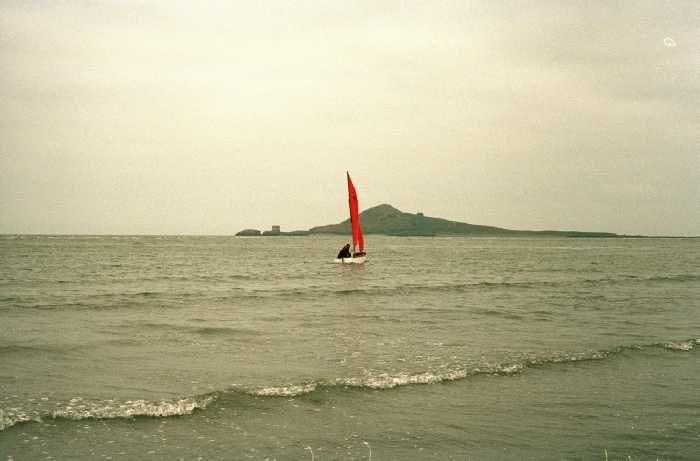E-
Artists have long been drawn to the sea. From naturalistic seascapes to vivid depictions of aquatic life, its vastness, timelessness and mutability has fascinated poets, writers and artists for centuries. Titled after the 1963 short story by J.G. Ballard, Now Wakes the Sea considers a resurgence of interest in the sea in contemporary art practices, presenting Irish and international artists whose work explores ideas of submersion and salvaging, the lure of the ocean for seafarers, and the secrets hidden in its unseen depths.

Now Wakes the Sea - Contemporary art and the ocean
The Glucksman, University College Cork (Ireland)
04.08 - 05.11.2017

In Ballard’s story, a man experiences nighttime visions of crashing waves encroaching upon his landlocked, suburban neighbourhood, revealing a latent desire to sacrifice his humdrum existence and to return to these ancient waters. This idea of the seductive but deadly lure of the sea resonates with artworks in the exhibition which explore the ocean’s attraction, the adventure of taking to the open waves, and the primordial nature of the sea as a repository from which narratives and objects can be reclaimed.
In Tacita Dean’s work, the impulse to set sail is portrayed in a triptych of photographs based on the doomed voyage of Donald Crowhurst, an amateur sailor lost at sea while competing in a solo yacht race round the world. This navigational loss of his bearings and sense of time, recorded in his logbook, eventually overwhelmed Crowhurst and led him to throw himself overboard. Andreas Kindler von Knobloch’s Ultima Thule records a more auspicious journey, presenting materials relating to the artist’s sailing expeditions into the waters of Dublin Bay, inspired by the writer René Daumal and the Dutch conceptual artist Bas Jan Ader. A different approach to the sea voyage is captured in Lucy Skaer’s sculpture of patterned sails and aluminium blocks, based on the allegory of the Ship of Fools, popularised in the mid-
The unknowability of the sea is not only in its breadth but its depth. Unfathomable mysteries lie submerged, impenetrable to sight or sound. In the work of Janaina Tschäpe, the inscrutability of the ocean is realised through densely layered paintings that evoke shimmering surfaces and opaque depths, and her film that re-
The salvaging of materials that have been left to rust on the seabed or to bob amongst the waves is explored in several works. Sean Lynch tracked the outmoded metal casts of Belfast's bankrupt DeLorean car factory to their re-
Artistes: Tacita Dean, Marcel Dinahet, Sean Lynch, Maria McKinney, Conrad Shawcross, Lucy Skaer, Janaina Tschäpe, Andreas Kindler von Knobloch, Anna Zacharoff
Curated par Chris Clarke et Kirstie North
Now Wakes the Sea: Contemporary art and the ocean is supported by University College Cork, The Arts Council Ireland, and private philanthropy through Cork University Foundation.
Andreas Kindler von Knobloch, Ultima Thule, 2012. C-
Exhibition 4 August -

© ArtCatalyse International / Marika Prévosto 2017. All Rights Reserved
